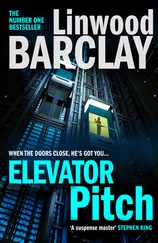Glover found his voice. “That’s your mother? And you just happened to land a job helping the mayor? Are you some sort of spy?”
“No,” Arla said. “She didn’t even know I was applying for the job.” She looked at Barbara. “I’m fired, right? Did Headley tell you that?”
Barbara nodded. “Pretty much.”
“Terrific,” Arla said, tearing up herself now. “Fan-fucking-tastic.”
Glover was still struggling to put it all together. “I don’t — I had no idea. You don’t... have the same name.” He reached back across the table for Arla’s hand before she could pull it away. “I’ll talk to my father. He can’t fire you like that. I oversee your department. I’ll handle this.”
Barbara couldn’t stop looking at Glover’s hand on Arla’s.
“Don’t,” Barbara said quietly. Glover, startled, slowly withdrew his hand as Arla’s cheeks flushed.
Glover took a moment to compose himself and said, “I should go.” He tossed some bills onto the table to cover their drinks and slid out of the booth. Before walking away, he looked at Arla and said, “I’m going to sort this out.”
But Arla couldn’t look at him. Her head was bowed, she had one hand over her eyes. Barbara sat where Glover had been.
Without looking at her mother, Arla said, “I hate you.”
Barbara said, “I don’t blame you. And I think maybe you’re about to hate me even more.”
Arla took her hand away from her eyes and looked at her mother through tears. “That seems unlikely. You’ve lost me my job.” She tilted her head toward the door, in the direction Glover Headley had gone, and said, “Maybe more than that.”
“It wouldn’t have worked out with Glover,” Barbara said.
“Oh, and why’s that?” Arla asked. “Because you hate his father? If you’d been there for me more, you’d know I’ve got a mind of my own and don’t care whether you approve of people I see, or who their parents might happen to be.”
“It’s not... like that,” Barbara said.
“What, then?” Arla said. “Tell me. I’d really like to know.”
“It could never have worked out with Glover,” Barbara said slowly, “because he’s your brother.”
When she comes through the doorway, she is panting, desperate for air. “I think I need a drink of water,” she gasps. And then she begins to stagger.
The boy is sitting cross-legged on the floor, watching an episode of Star Trek . He jumps to his feet.
“Mom?” he says.
She puts a hand to her chest. “It hurts so—”
And then she goes down. First to her knees, then the rest of her pitches forward. She doesn’t even manage to get an arm in front of her to help break her fall. Her face has turned slightly, so she lands on her right check.
“Mom!” the boy screams, running to her.
She moves her lips, whispers something to her son. “I need... call your father.” Her eyelids close.
“Mom? Mom? Say something. Mom. Please don’t die. Mom? Mom. Open your eyes. Look at me. Mom. Mom! I love you, Mom. I love you. Oh, Mom. No no no no no.”
No elevators plummeted Thursday morning.
No bombs exploded.
But the day was young.
Eugene Clement, seated one table over from where they were in the hotel dining room the day before, asked, “Are you all packed?”
Estelle didn’t look up from her menu. “Yes. I’m good to go.”
“I’ll get us a car to the airport around ten,” he said. “I’ll have someone bring our bags down.”
“That sounds fine,” she said.
Things were less frosty than they’d been twenty-four hours earlier. They were speaking. Current events had brought about a thaw in relations.
After Estelle had toured the Guggenheim the day before, she’d crossed Fifth Avenue and strolled through Central Park for a couple of hours. It was while wandering the park’s paths that she heard people talking about something to do with elevators. She went onto her phone and read about the crisis engulfing the city. It was then that she suppressed the animosity she was feeling toward her husband and called to ask if he knew what was happening, to warn him not to use the hotel’s elevators. Or any other elevators in the city, for that matter.
“Good thing we’re on one of the lower floors,” he said.
So that evening they walked over to Pera, both ordering the lamb chops — their last New York dinner before heading home — and that evening, Clement even made love to her.
The things you had to do sometimes.
Clement still had another matter to take care of before they departed. One more meeting.
“I think I’ll have the eggs benny,” Estelle said.
“Sounds good. If the waiter comes while I’m away, make it two. And would you ask him to bring more cream for the coffee?”
As he started to push back his chair, she asked, “Where are you going?”
“Where do you think I’m going?”
“You haven’t even had a second cup yet,” she said. “You already have to go?”
“I’d love to discuss my urinary tract with you, dear, but could it wait till I get back?”
He strode off.
Clement exited the dining room, crossed the lobby, then entered a hallway around the corner from the elevators. He pushed open the door to the men’s room. Standing at the last in a row of sinks was Bucky, leaning in close to the mirror, trying to pluck a hair from his nostril.
Bucky turned and offered the hand he’d just been working with to his boss, who declined to take it.
Bucky grinned as he withdrew his hand. “Sorry.”
“We leave at eleven,” Clement said.
“Sure, that’s fine,” Bucky said. “So you won’t be here for the next ones.”
“No, but I’ve been thinking, maybe the timing’s not right. We’ve been overshadowed. I think we should hold off for a while, or try a new location. There’s too much else going on here. Everyone’s on high alert.”
Bucky frowned. “I’m ready to go. I wanted to talk locations. What do you think about a subway station in rush hour? Or maybe a department store?”
Clement motioned Bucky over to the far wall. They each leaned a shoulder into it as they continued to confer.
“Listen,” Clement said, “you’ve done good work. And there’s more to be done. But it’s time to take this show someplace else, cities we haven’t hit before.”
Bucky couldn’t hide his disappointment. Clement offered a regretful smile. While he didn’t want to shake the man’s hand, a pat on the shoulder seemed appropriate. As he lay his hand there, he said, “We’ll find a way to talk when I get home.”
“Okay, that’s a good—”
“I knew it,” someone said.
They both turned. Estelle Clement was standing just inside the door of the men’s room.
“Jesus Christ,” Eugene said, taking his hand off Bucky’s shoulder. “You can’t be in here.”
She took five slow steps into the room. She glanced, briefly, at her reflection in the massive mirror that ran along the wall.
“It all makes sense now,” she said. “I think I’ve known all along. At least, for a while. The... lack of interest. How distant you’ve been. I... didn’t want to see the signs.”
“Shit,” said Bucky.
“How long?” Estelle asked, looking at her husband. “How long has it been going on? Is he the first, or just the latest?”
Clement was on the verge of a smile. “Wait, what is it you think—”
“I hid down the hall,” she said. “Yesterday. This man came out seconds after you did. The same man I’d seen before. Too many times for it to be a coincidence.” She shook her head sadly, then eyed her husband pityingly. “It’s all so pathetic. An entire hotel at your disposal, and still you meet in here. Is there some thrill attached to that? Tell me. I really want to know. God, it’s such a stereotype. Such a cliché.”
Читать дальше
Конец ознакомительного отрывка
Купить книгу
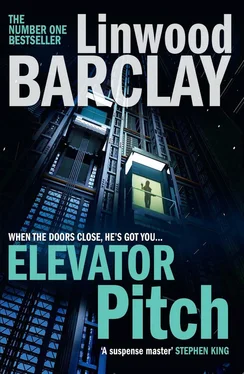


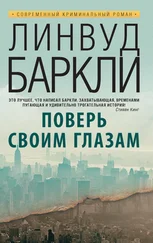
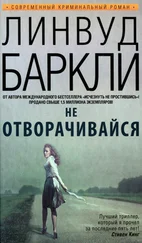
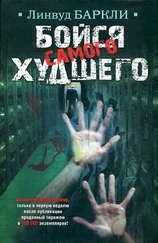
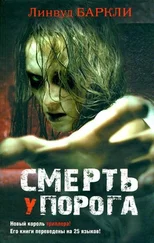
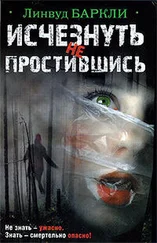
![Линвуд Баркли - Последний выстрел [litres]](/books/412435/linvud-barkli-poslednij-vystrel-litres-thumb.webp)


